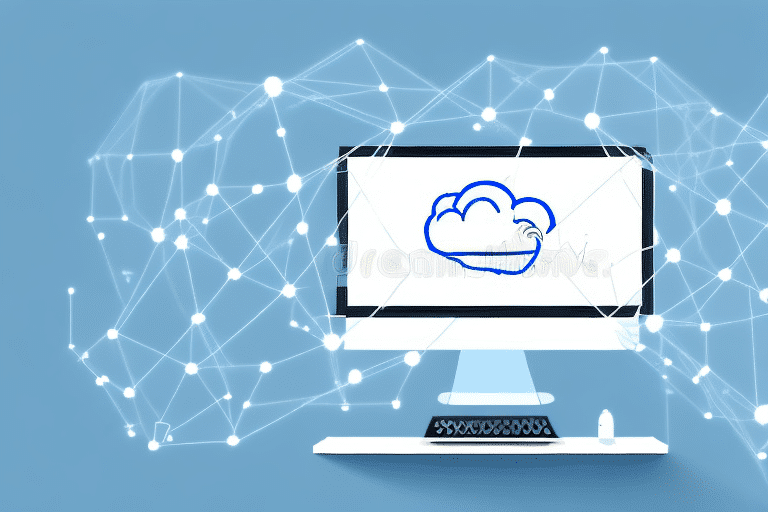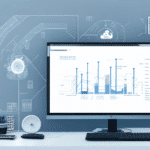Connecting, Optimizing, and Managing LSO for Infor CloudSuite Industrial (SyteLine)
Are you utilizing Infor CloudSuite Industrial (SyteLine) for your manufacturing operations? Implementing LSO (Lean Service Operations) can significantly enhance your manufacturing processes by reducing waste, improving quality, and increasing customer satisfaction. However, managing LSO effectively, especially across multiple sites, can be challenging. This guide provides a comprehensive overview of connecting, optimizing, and managing LSO within Infor CloudSuite Industrial (SyteLine).
Understanding LSO and Its Benefits for Infor CloudSuite Industrial (SyteLine)
LSO is a set of practices and tools designed to enhance service efficiency, quality, and customer experience. Integrating LSO with Infor CloudSuite Industrial (SyteLine) offers numerous advantages:
- Reduced Waste: Identifies and eliminates non-value-added activities, minimizing material, time, and resource waste.
- Enhanced Quality: Standardizes processes to ensure consistent and reliable service delivery.
- Increased Customer Satisfaction: Reduces lead times and increases throughput, improving responsiveness.
- Improved Visibility: Tracks service metrics and KPIs for clear performance insights.
According to a McKinsey report, implementing lean practices can reduce operational costs by up to 25%.
The Challenges of Managing LSO in Infor CloudSuite Industrial (SyteLine)
While LSO offers significant benefits, managing it within Infor CloudSuite Industrial (SyteLine) presents several challenges:
- Integration: Combining multiple data sources and systems can be technically complex.
- Data Accuracy: Ensuring accurate and up-to-date data across dispersed systems is critical.
- User Adoption: Encouraging teams to embrace new practices and tools requires effective change management.
- Continuous Improvement: Ongoing monitoring and optimization demand persistent effort and resources.
Step-by-Step Guide to Implementing LSO in Infor CloudSuite Industrial (SyteLine)
Implementing LSO effectively involves a structured approach. Follow these steps to ensure successful integration:
- Identify Your Service Processes: Map out current service processes to pinpoint areas of waste and inefficiency.
- Configure LSO in Infor CloudSuite Industrial (SyteLine): Utilize the LSO features to track service orders, labor, materials, and equipment. This setup facilitates data capture for analysis and improvement.
- Train Your Team: Provide comprehensive training to ensure your team understands the benefits of LSO and is proficient in using the new tools and practices.
- Measure Your Performance: Use KPIs such as throughput, lead time, quality, and customer satisfaction to assess performance. Generate reports and dashboards to identify improvement areas.
- Analyze and Optimize: Leverage data insights to redesign processes, eliminate waste, deploy automation tools, and invest in necessary resources for continuous improvement.
Optimization Tips for LSO in Infor CloudSuite Industrial (SyteLine)
After implementing LSO, follow these optimization tips to maximize its effectiveness:
- Standardize Your Processes: Ensure consistency across different sites, products, and customers to facilitate performance comparison.
- Leverage Automation Tools: Implement robots, sensors, or machine learning algorithms to reduce manual work and minimize errors.
- Collaborate with Suppliers and Customers: Extend LSO benefits by sharing data and aligning practices with your supply chain partners.
- Continuously Monitor and Improve: Regularly review performance metrics and gather feedback to drive ongoing enhancements.
The Relationship Between LSO and IT Infrastructure
Effective management of LSO requires robust IT infrastructure. Key considerations include:
- Connectivity: Ensure seamless integration between different systems using APIs, web services, or ETL tools.
- Data Quality: Implement strong data governance and management practices to maintain accurate and timely data.
- Data Analysis: Utilize advanced data analysis and visualization tools to interpret the vast amounts of data generated by LSO.
- Security: Protect sensitive data with robust security measures to prevent unauthorized access and breaches.
Avoiding Common Mistakes in Managing LSO
To ensure successful LSO management, avoid these common pitfalls:
- Underestimating Complexity: Recognize that LSO implementation requires specialized knowledge and skills.
- Neglecting Team Involvement: Engage and train your team effectively to foster adoption and commitment.
- Failing to Measure Performance: Regularly monitor KPIs to assess the impact of LSO on operations and customer satisfaction.
- Ignoring Continuous Improvement: Treat LSO as an ongoing initiative rather than a one-time project.
Advantages of LSO with Infor CloudSuite Industrial (SyteLine) Over Other Solutions
LSO integrated with Infor CloudSuite Industrial (SyteLine) offers distinct advantages compared to other solutions:
- Tight Integration: Seamlessly leverages the full capabilities of your ERP system, including manufacturing planning and inventory control.
- Customization: Tailor LSO to meet specific operational and customer requirements.
- Expertise: Benefit from Infor's extensive resources and support for implementing and managing LSO.
- Scalability: Easily scale LSO across multiple sites and geographies to manage global service operations effectively.
Troubleshooting Common LSO Issues in Infor CloudSuite Industrial (SyteLine)
Despite its benefits, LSO may encounter issues that require troubleshooting:
- Data Input Errors: Ensure data accuracy by verifying data sources and providing proper training on data entry.
- Integration Issues: Check connectivity and data transfer protocols. Verify API endpoints and data mappings, and ensure there are no network or firewall restrictions.
- User Adoption Issues: Provide ongoing training and support. Address resistance through clear communication and demonstrate the benefits of LSO.
- Performance Issues: Utilize KPIs and data analytics to identify underperformance. Optimize processes based on data-driven insights and team feedback.
The Future of LSO in Industry 4.0 and Smart Manufacturing
As Industry 4.0 and smart manufacturing evolve, LSO's potential continues to expand. Future enhancements include:
- IoT Integration: Utilize data from IoT devices like sensors and robots to enhance service efficiency and quality.
- Predictive Analytics: Implement machine learning algorithms to forecast service demand and optimize scheduling.
- Collaborative Planning: Integrate with supply chain planning, CRM, and financial systems to align stakeholder interests and optimize the value chain.
- Digital Twin Technology: Simulate and optimize service processes virtually, reducing the need for physical testing.
Best Practices for Managing Multiple Sites with LSO in Infor CloudSuite Industrial (SyteLine)
Managing LSO across multiple sites requires strategic practices to ensure consistency and efficiency:
- Standardize Processes: Implement uniform service processes using templates and guidelines to ensure consistency across sites.
- Centralize Data: Use a cloud-based ERP system like Infor CloudSuite Industrial to centralize data, facilitating real-time collaboration and data accuracy.
- Assign Local Teams: Empower local teams with clear reporting structures and the necessary resources to manage LSO effectively.
- Coordinate Planning: Align service planning across sites using common KPIs and metrics. Share best practices and synchronize incentives to optimize the entire value chain.
Comparing LSO Solutions: Choosing the Right Fit for Your Business
Selecting the appropriate LSO solution depends on your specific needs and existing systems. Here's a comparison of popular LSO solutions:
- Infor CloudSuite Industrial: Offers a comprehensive LSO module tightly integrated with its ERP system. Provides extensive support and scalability, making it suitable for businesses seeking a reliable and customizable solution.
- Oracle JD Edwards: Features an LSO module that integrates with its ERP system, offering additional functionalities like mobile support and predictive analytics.
- SAP ERP: Provides an LSO module with capabilities for automation and optimization of service processes, along with real-time analytics and IoT integration.
- LeanKit: A cloud-based LSO solution focused on visualization and collaboration, utilizing Kanban boards and lean metrics for enhanced team coordination.
Evaluate each solution's features, integration capabilities, and support services to determine the best fit for your organization's needs.
Conclusion
Implementing and managing LSO within Infor CloudSuite Industrial (SyteLine) can transform your service operations by reducing waste, enhancing quality, and boosting customer satisfaction. Despite the challenges, following best practices and leveraging the right tools ensures successful LSO integration. As Industry 4.0 continues to advance, staying ahead with optimized LSO strategies will position your business competitively in the smart manufacturing landscape.






















